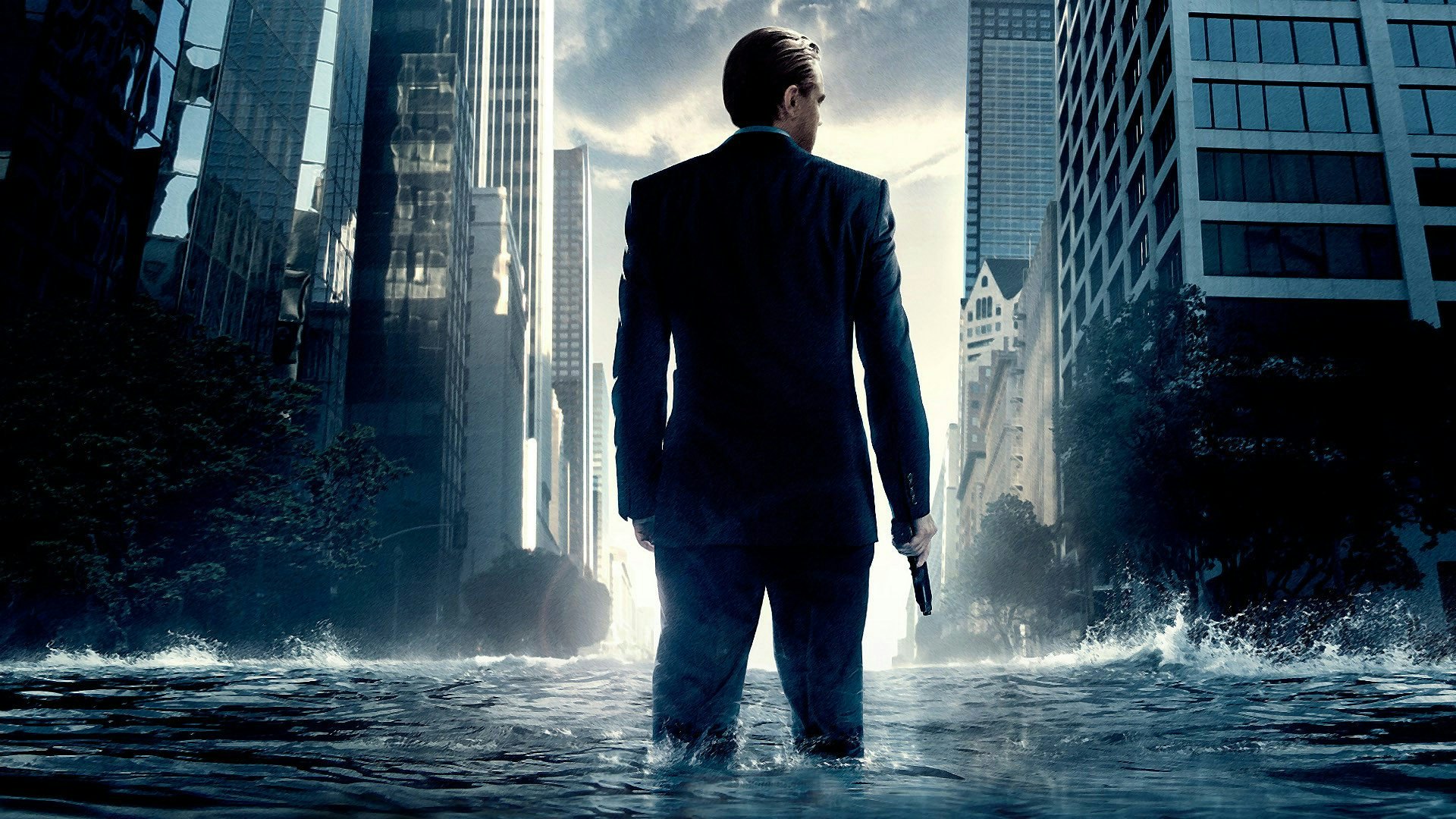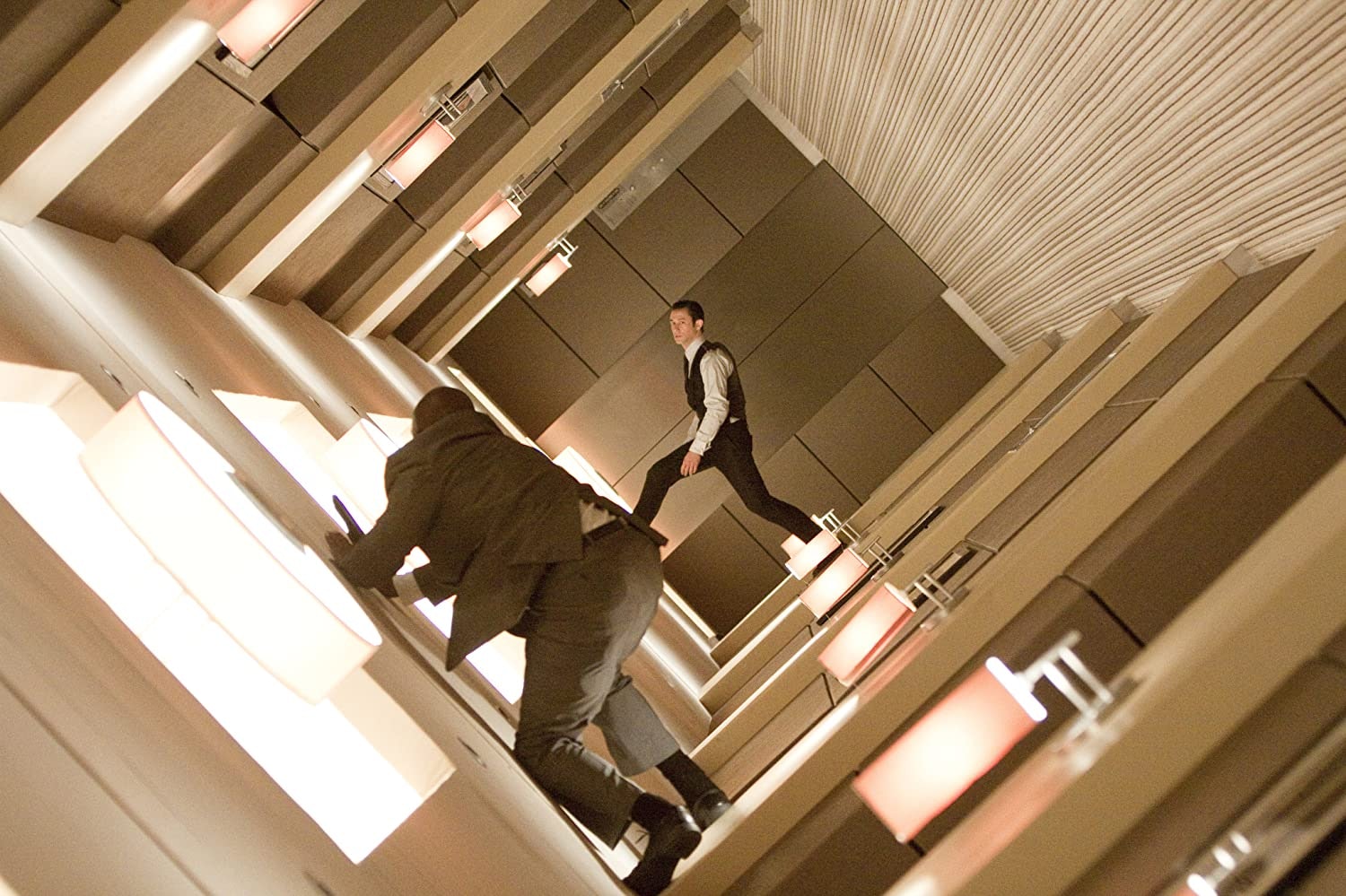
This month marks the 25th anniversary of Christopher Nolan’s feature-length directorial debut, the indie neo-noir Following, which premiered at the San Francisco International Film Festival in April 1998. Nolan has a new movie, Oppenheimer, out this July, and though a biopic might seem like a departure for him, this one’s rooted in war history, a familiar subject to Nolan after the Oscar-nominated Dunkirk.
In telling the story of the father of the atomic bomb, Nolan will trade the science fiction of Interstellar and Tenet for science fact. Halfway through his filmography, however, he reached the height of his blockbuster skills with Inception, a globe-trotting sci-fi yarn where the concept of reality — what’s factual, if you will — is in perpetual doubt.
Leonardo DiCaprio leads as Dom Cobb, a thief and international fugitive who carries out corporate espionage via a briefcase of dream-sharing tech. Usually, Cobb extracts secrets, but a rich client, Saito (Ken Watanabe), offers him the chance to be reunited with his kids by planting an idea, undetected, in a rival businessman’s head. What follows is, as Zack Hemsey’s trendsetting trailer characterized it, a “mind heist” on a grand stage, one that cross-cuts between dreams within dreams as Cobb and his team learn how deep and perilous a place the mind can be.
Backed by a BRAAAM-filled Hans Zimmer score, Inception hit theaters in the summer of 2010, just months before the launch of Instagram. Other social media platforms, which furthered the new internet twist on memetics, were still relatively young. In the coming decade, platforms like Twitter would connect people but also facilitate the spread of misinformation. Something like that happens in the shared dreams Cobb and his team inhabit, as living memories of his dead wife (one of many in Nolan’s fridge) arise unbidden to threaten their mission.
Played by Marion Cotillard, the character’s very name, Mal, pegs her as the personification of unwanted thought, a bad idea that’s nonetheless a good femme fatale and meme of sorts. At the beginning of Inception, when Cobb tells Saito how ideas are “the most resilient parasite,” it frames the brain as a host, less of an originator and more of an incubator for outside memes. If Mal never left Cobb’s head, you might call her an obsession, but sharing the dream space brings the possibility of others seeing her and suffering under the same mind virus.
Nolan imposes architecture — a folding city here, an infinite staircase there — along with screenwriting rules on his James Bond-esque dream world. In an interview preface to Inception: The Shooting Script, he said, “What the film tries to do is keep it in the realm of science fiction—to keep it in the realm of the mechanical and the relatable so it doesn’t become abstract and incomprehensible.”

Rather than show a failure of imagination (as in Tom Hardy’s one-liner, “You mustn’t be afraid to dream a little bigger”), this is essential to keep the dream grounded, if not outright indistinguishable from reality for its characters. Whereas a true dream might veer more off into fantasy and become alienating to an outside viewer, Inception shows the type that’s designed to be accessible to other participants, especially the audience.
At the time of its release, critics embraced Inception for its originality. Here was the rare studio tentpole not based on an existing intellectual property, though Nolan was a brand unto himself after The Dark Knight, and he acknowledged to the Los Angeles Times that Inception “very much pulled from that era of movies where you had The Matrix, you had Dark City, you had The Thirteenth Floor.”
You also had Paprika, Satoshi Kon’s surreal 2006 anime parade, which contains a similar mind-bending hallway scene like the one where Cobb’s partner, Arthur (Joseph Gordon-Levitt), climbs the walls to fight subconscious projections of hotel security. Synthesizing cultural patterns, Nolan simply inception-ed critics and audiences the way his own cinematic influences inception-ed him.
This goes along with the conceit that there are no new ideas, just new hosts that transform old ones, sometimes forgetful of their source. In Inception, what’s observable isn’t always true, and the most persistent ideas aren’t always the healthiest ones. Yet the best movies, of which Inception surely qualifies as one of this century’s, continue to plumb the depths of the thematic subconscious while entertaining in equal measure.
Inception is streaming on Netflix.







